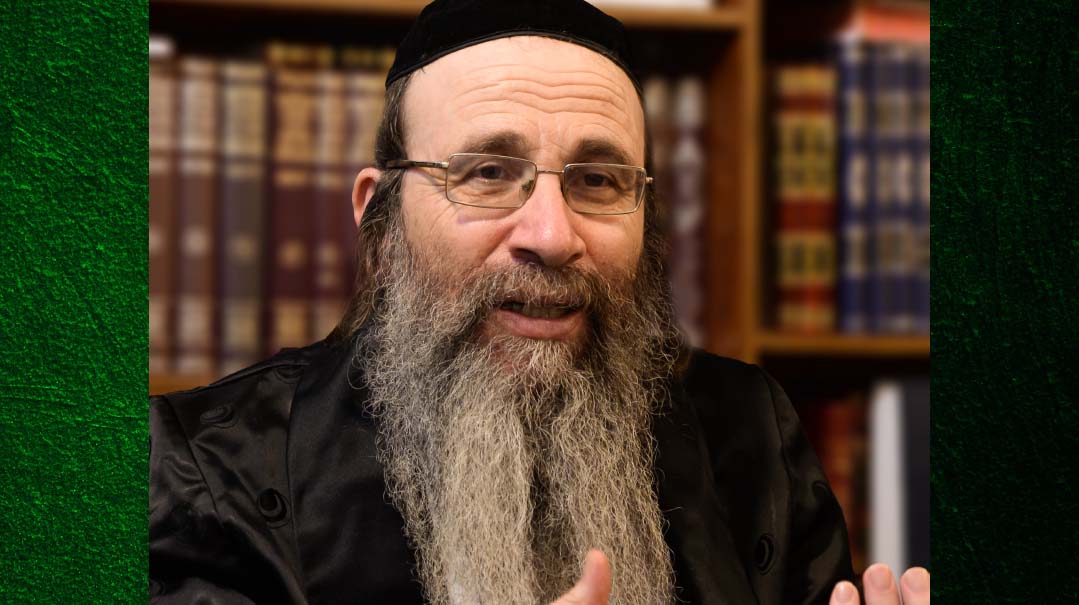For All and One

Mir Mashgiach Rav Binyamin Finkel extends an embrace to every Jew who wants to grow

Photos: Baruch Yaari
Ten years ago this week, the night after Rav Nosson Tzvi Finkel ztz”l passed away, I was inconsolable — and told as much to Rav Binyamin Finkel, today the beloved mashgiach of Yeshivas Mir, already then a prominent figure in the yeshivah with hundreds of adherents participating in his vaadim.
“I just can’t escape the feeling that had Rav Nosson Tzvi been healthy, our generation would have been given an even bigger gift,” I lamented to Rav Binyamin, a cousin by marriage and second-cousin by lineage to the Rosh Yeshivah who — despite being trapped in a pain-filled, Parkinson’s-riddled frame — displayed visionary leadership that grew the yeshivah into a massive Torah empire.
“You’re looking at it from a narrow, purely physical perspective,” Rav Binyamin chided me gently. “True, maybe had he been healthy he could have done more, maybe he could have disseminated more Torah, maybe there was something he wanted to do but was unable to, I really don’t know. But if we look at all that he did do, it’s clear that he never stopped short at anything. Who says that his limitations ever prevented him from fulfilling his ambitions? The midrash tells us that while a person shouldn’t use a broken vessel, HaKadosh Baruch Hu klei tashmisho shevurim [loosely, Hashem prefers to employ broken vessels]. Perhaps our generation merited a rosh yeshivah like him specifically because of his condition and not in spite of it.”
That’s Rav Binyamin, known throughout the Mir and beyond as “Binyamin Hatzaddik” — the man with infinite patience and understanding and a profound ability to reframe what looks like calamity and turn it into signs of Divine love.
Years before, when Rav Binyamin was, according to his own self-definition, just a “regular avreich,” he’d gotten an offer for a position outside the yeshivah and didn’t know whether to take it or not: It was prestigious in and of itself and would also be a good springboard for the future. He decided to ask his rosh yeshivah, Rav Nosson Tzvi. Rav Nosson Tzvi told Rav Binyamin to go ask his own father, Rav Aryeh Finkel ztz”l, rosh yeshivah of Mir-Brachfeld. Rav Aryeh, however, put the decision back in his cousin Rav Nosson Tzvi’s court. “You’re an avreich in Mir, and he’s your rosh yeshivah,” Rav Aryeh told his son. “Yes, but Rav Nosson Tzvi told me to ask you, as you’re my father,” Rav Binyamin replied. “Go back and ask your rosh yeshivah,” his father insisted.
Rav Nosson Tzvi gave a wise answer that made clear his position but also made sure Rav Aryeh had the last word: “If your father tells you to stay here in the Mir,” said Rav Nosson Tzvi, “then I’ll be happy. If he says to take the position, I won’t interfere.”
Years later, when the yeshivah was experiencing severe financial difficulties, Rav Binyamin — who was at that time on the yeshivah payroll, giving shiur and vaadim — was seen in the line of people waiting to see Rosh Yeshivah Rav Nosson Tzvi. While most of the young men were asking about their monthly stipend, and some were asking for a raise, Rav Binyamin had a different request: “I know the situation now,” he told Rav Nosson Tzvi, “so I want a pay cut.”
This is Rav Binyamin Hatzaddik. Shabsi Binyamin Finkel, son of Rav Aryeh, son of Rav Chaim Zev, son of Rav Eliezer Yehudah, son of Rav Nosson Tzvi Finkel — ben achar ben, eldest after eldest, of the Alter of Slabodka, zy”a. And all he desires is one thing: to be able to teach and learn Torah with love.
Oops! We could not locate your form.







